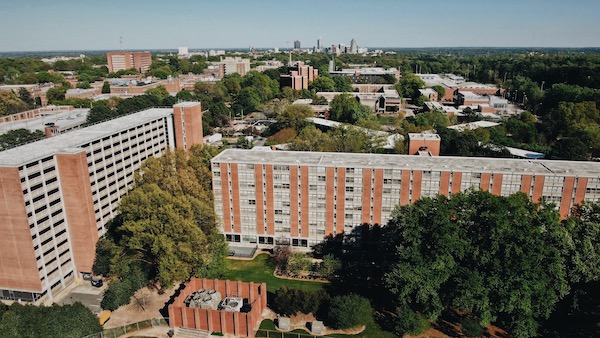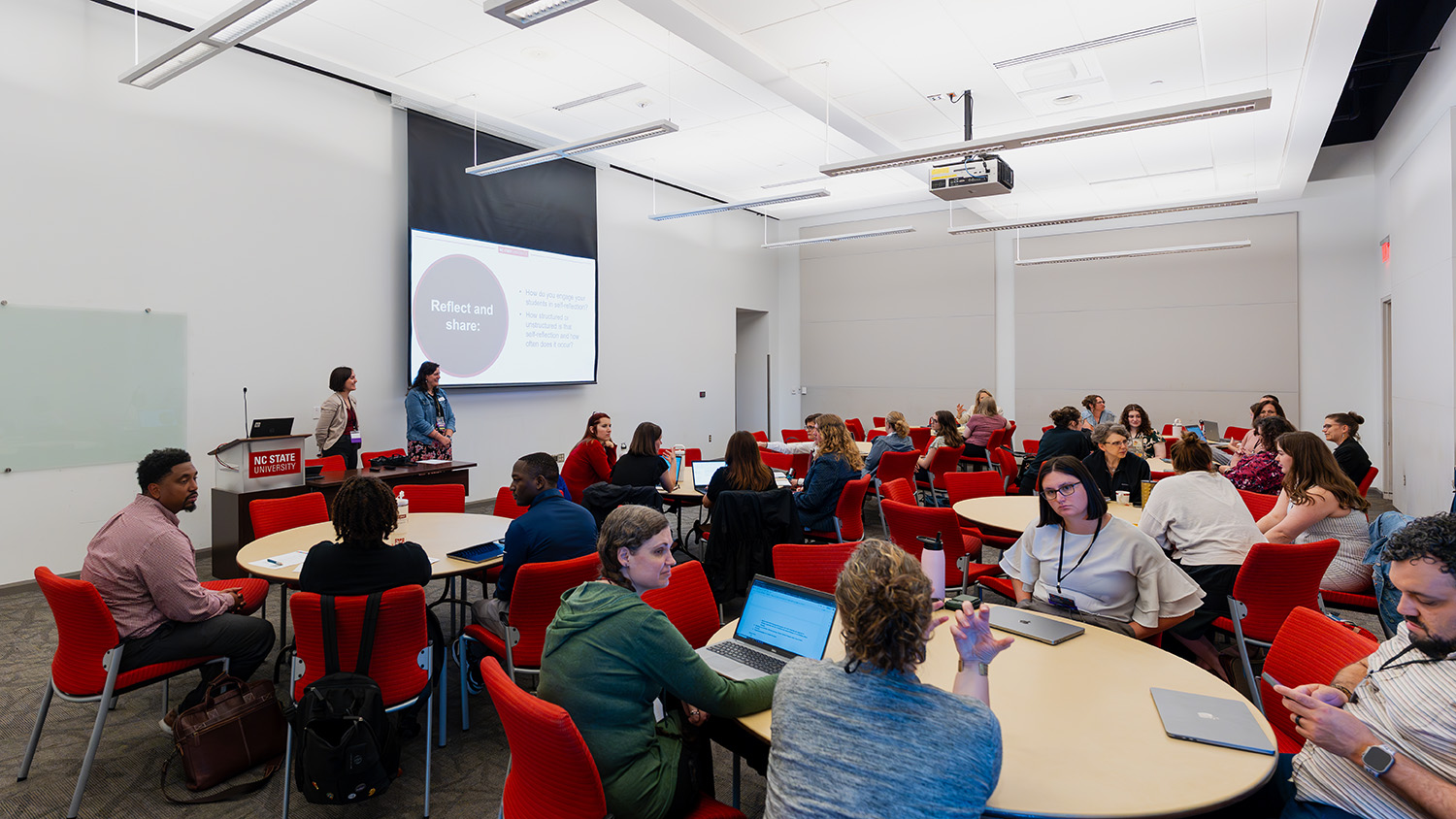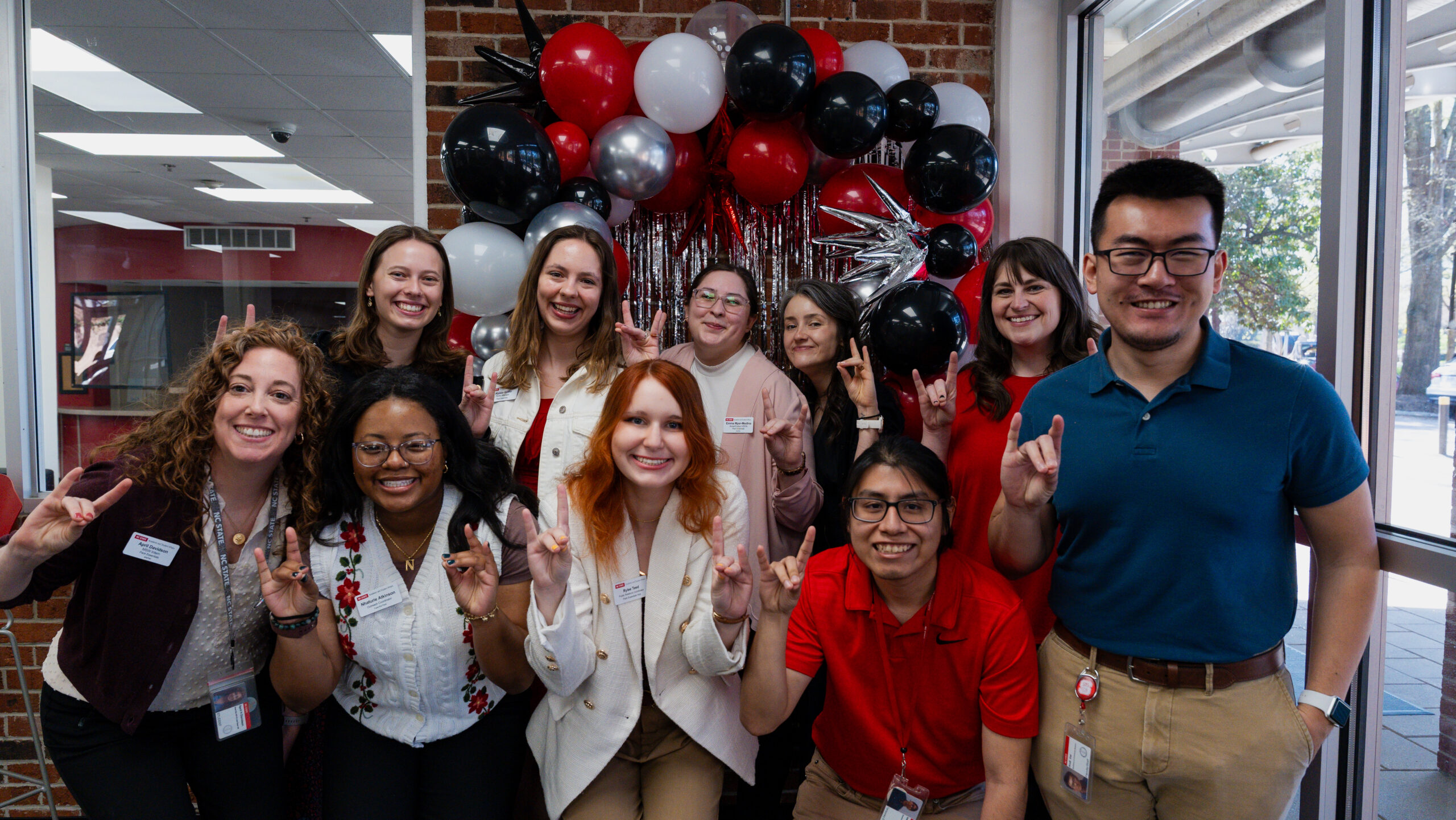Amid Unprecedented Circumstances, University Housing Marshals Resources and Talent to Safeguard Community

While students were enjoying spring break, NC State Division of Academic and Student Affairs teams across campus began mobilizing for the anticipated drastic measures to safeguard the community. The University Housing team went into high gear on realizing the stark fact that campus residences would need to be closed, displacing nearly 10,000 residents.
Here’s how it unfolded:
March 7
On heading to his permanent home in Charlotte, N.C., for spring break, Daniel Haller, Honors and Scholars Village mentor, had no idea that he—and most of his fellow university residents would not be returning to campus after the break. As a mentor, Haller, a sophomore in chemical engineering, lived with first-year students in the Honors and Scholars Village, where he was both a mentor and resident advisor.
“I was so excited to pack up and go that I didn’t really say goodbye,” he said. “I never dreamed that we wouldn’t return this semester!”
Over in University Housing, Donna McGalliard, assistant vice chancellor and executive director, and her team had just wrapped up the fall room selection, planned for the Spring Housing Fair, and were proceeding with the semester as usual.
March 10
As the news came about the virus quickly spreading across the world, it was clear that University Housing needed to shift gears and go into crisis and emergency planning. The team met and hashed out all of a myriad of “what if” scenarios.
“We knew we had to be prepared for any outcome, and having contingencies in place for the possibilities allowed us to be nimble and respond more quickly,” McGalliard said. “Our chief priority is the safety of our residential community.”
“Our chief priority is the safety of our residential community.”
Donna McGalliard, Asst. Vice Chancellor and Executive Director
March 16
At mid-day, the Centers for Disease Control and Prevention confirmed 3,487 confirmed or presumptive cases of COVID-19 in the United States, and the federal government declared a state of national emergency in order to deal with the virus.
NC State extended spring break by another a week as the worst-case scenario materialized. NC State announced the decision to transition to remote learning for the entire campus for the remainder of the semester. University residents learned they could only return to campus briefly to collect their essential items.
McGalliard’s team was well prepared. “We’d been planning for a week. We created a ‘war room’ to implement the plan and address newly revealed information. This was a lesson in thinking of all of the different parts and pieces of a puzzle so that we could keep students, families, and staff safe and informed. No matter how thorough a plan is, there is always the granular level of detail to tend to at the last minute as we received new information.”
March 22
As the 5 p.m. deadline for residents to retrieve their essential belongings approached, the University Housing team launched their plans to ensure the process of moving out went as smoothly as possible.
In the afternoon, housing, parking, and transportation staff helped walk the two million square-feet of residential housing. In three hours, keys were taped to every door for express checkout. These three hours of on-the-ground preparation made an efficient and safe checkout process possible.
“One of the great things about working in the Division of Academic and Student Affairs is the collegiality. We asked the division for help after checkout and 85 volunteers joined our staff to walk through every building and open every single resident door to see if students had fully or partially checked out. We could have never accomplished this enormous task without our great division colleagues,” McGalliard noted.
Special Circumstances
For some residents and staff, the university is their permanent home—they have no other place to go. University Housing processed the hundreds of completed special circumstances housing forms resulting in nearly 700 residents being able to remain on campus.
“We take care of all members of the Wolfpack, and are thankful we can,” McGalliard said.
University residences include dormitory rooms and apartments. For residents in housing without kitchens, Fountain Dining Hall provides daily take-out meals.
Amber Parker is a senior in Psychology and one of seven RAs for the 450 residents in ES King and Western Manor apartments. “Many of the graduate students and their families are from China and India. The university is their permanent residence! Many of them completed the special circumstances form so they are able to stay on campus.”
Parker continues to live on campus, and because she can work remotely, she has some semblance of normalcy in a time of great uncertainty. She rotates monitoring the email for the entire community with her fellow RAs to provide complete residential coverage, including facility management, package retrieval, and more.
“The hardest part is not being able to have regular interaction with residents. I can wave to them from across the parking lot, but it’s really strange,” she said. “I’m so grateful to University Housing for accommodating the people who had no place to go! The alternative would have put them in a terrible situation.”
Resident Advisors and Mentors
The university’s 240 resident advisors and 120 resident mentors were living on campus as well as teaching and studying. Some, like Parker, chose to stay on campus. Others, like Haller, remain at their permanent residences. All continue to work remotely through technology.
McGalliard said her team gave RAs general guidelines about participating in staff meetings and reaching out to residents in creative and engaging ways, including hosting asynchronous programs, virtual hangouts, and field trips. “They are incredibly committed to keep their resident community engaged.”
Parker organized Zoom puppet shows for the children of graduate students. Haller and other RAs and Fellows have developed events including Virtual 5-Ks through photos, film screenings and Zoom discussions, and even dance lessons through Tik-Tok. “I’m working on a virtual book club too—it allows folks across the Honors Program to see each other and discuss a book,” he said.
Adjustments
For McGalliard and many others, one of the biggest adjustments to this disruption is so much sitting in front of computers, working and participating in Zoom calls.
In March she celebrated her one-year anniversary in her role at NC State, having been the associate vice president of campus life and dean at Wake Forest University for 18 years—six of those as AVP and dean of residence life, and the previous 12 as director of residence life and then dean of residence life and housing.
“I credit my team with having a lot of faith in me during this crisis—I was just a few days from my one year when the pandemic hit. The greatest reward is seeing the collegiality of various units across campus come together. My team was so responsive in dropping the unnecessary in order to pick up the crucial. It’s heartwarming to have such great teammates!”
- Categories:


